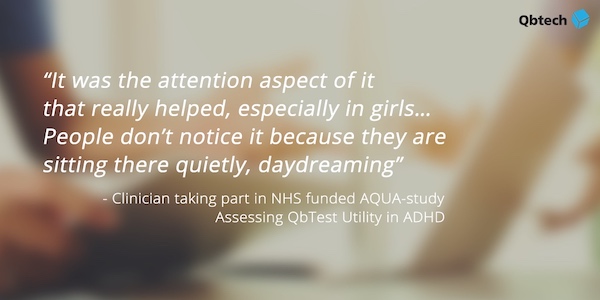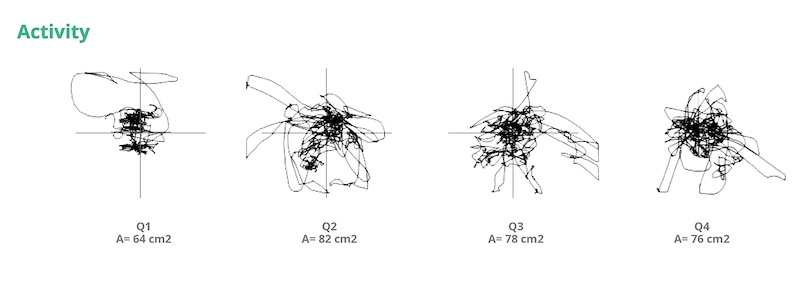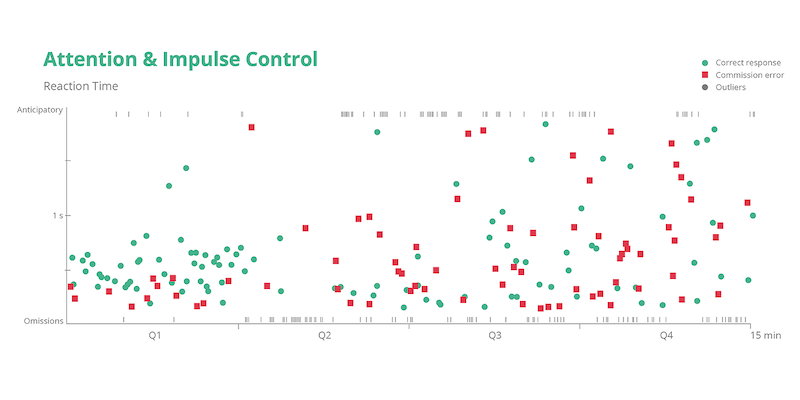1-minute summary: An NHS funded research report carried out with the cooperation of the University of Nottingham has been published on BioMed Central. The study examines user experience of the objective test, QbTest, to aid ADHD assessment and medication management. The study reports that Health Care Professionals found it easier to explain why they had ruled out a diagnosis of ADHD by showing families a comparison of their child’s performance to a normative sample, free from interpreter bias.
Leading ADHD researchers at the University of Nottingham have recently published the results of a study funded by the NHS via the National Institute for Health Research, UK, into the perceptions of Health Care Professionals and Families regarding the ADHD Test, QbTest [1]. Clinicians, parents and young people with experience of QbTest were interviewed and a thematic analysis was conducted alongside a quantitative survey that included 10 clinicians and 76 families.

QbTest result sample:


The results of this study
Health Care Professionals found it easier to explain why they had ruled out a diagnosis of ADHD. Clinicians reported this can be contentious, with families often refuting this diagnostic decision. They felt that being able to show the families a comparison of their child’s performance to a normative sample, free from interpreter bias helped families accept this decision.
Health Care Professionals report feeling more confident in their decision making when they have access to objective QbTest reports
Health Care Professionals commented on the utility of the attention measure for inattentive girls – who can be hard to diagnose
Qbtech is the world’s leading ADHD test company with two products called QbTest and QbCheck. Both products are FDA cleared and CE marked for use by qualified professionals. QbCheck is only available in certain markets – please click here to see if you are eligible.
- Hall, C L, et al. (2017). Study of user experience of an objective test (QbTest) to aid ADHD assessment and medication management: a multi-methods approach: BMC Psychiatry, 2017, Volume 17, Number 1, Page 1https://bmcpsychiatry.biomedcentral.com/articles/10.1186/s12888-017-1222-5